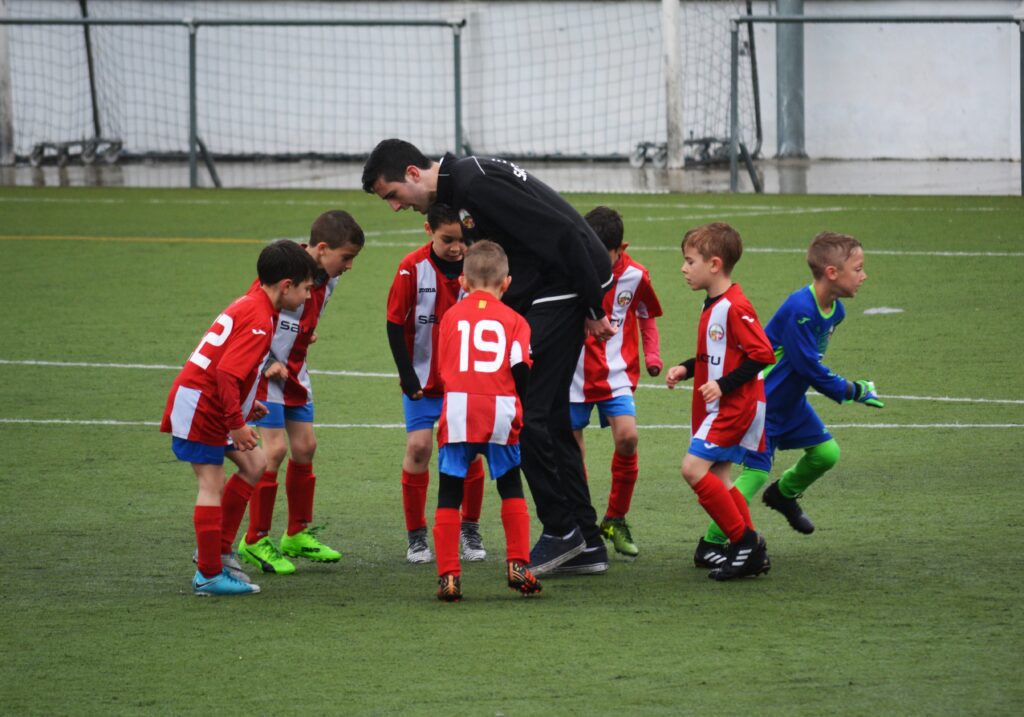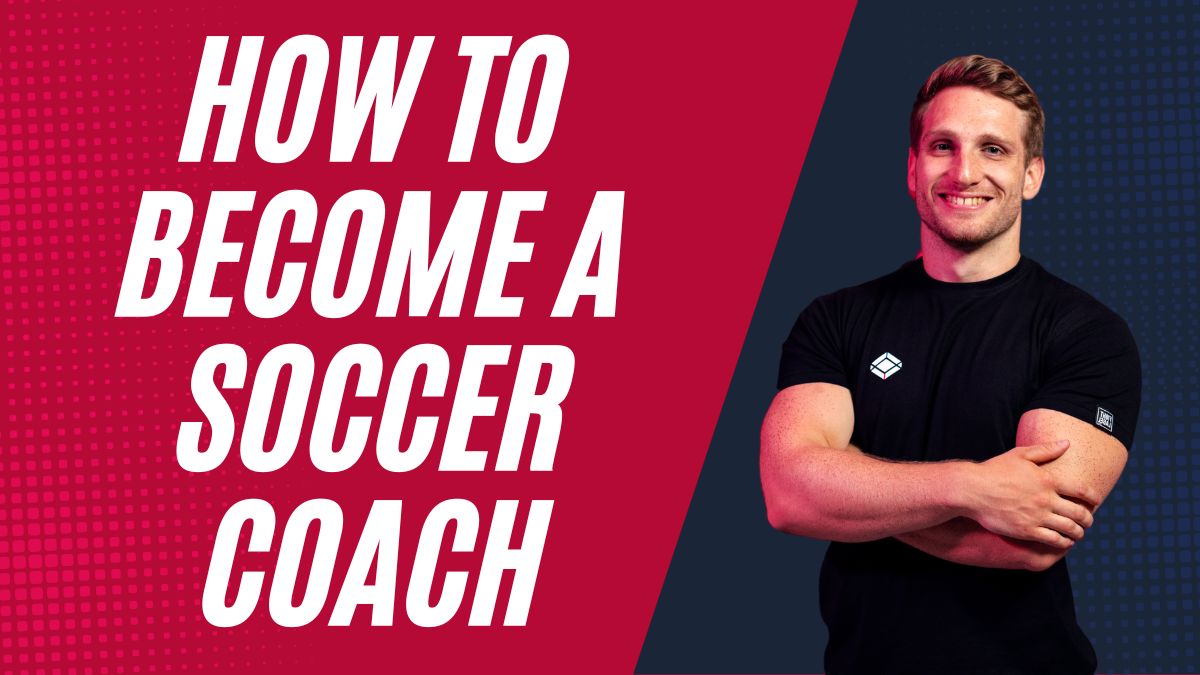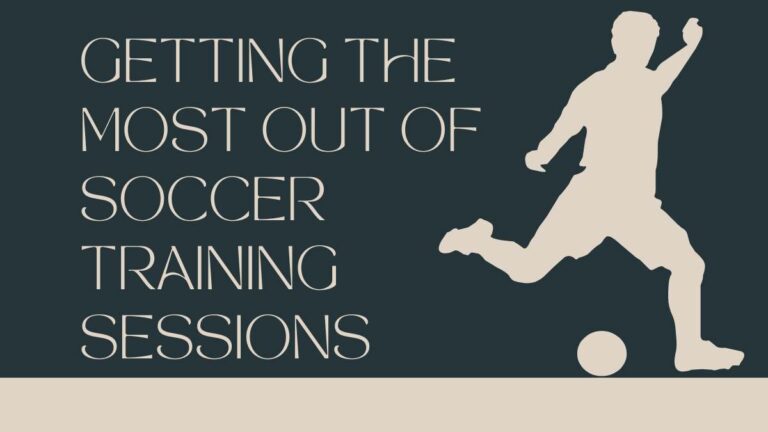How to Become a Soccer Coach – A Full Guide (2024)
Have you ever been inspired by the dedication and passion of soccer coaches, guiding players from novices to skilled athletes? Perhaps you possess a deep understanding of the game, a passion for inspiring others, and a desire to make a positive impact. If so, then coaching soccer might be the perfect path for you!
This blog is your comprehensive guide to embarking on this rewarding journey. Whether you’re a seasoned player eager to share your knowledge, an educator seeking new avenues to empower young minds, or simply an enthusiast with a heart for the sport, we’ll equip you with the tools and knowledge to become a successful soccer coach.

Here, you’ll delve into the essential elements of coaching, from understanding different age groups and their unique needs to mastering effective training techniques and fostering a positive team environment. We’ll explore crucial aspects like developing game strategies, fostering communication and leadership skills in players, and navigating the exciting, and sometimes challenging, world of coaching.
In this article, we’ll take you through some of the essential skills and qualities you need in order to learn how to become a soccer coach. We’ll also share some tips and tricks to get you started on your journey. So, gear up and get ready to embrace the excitement of soccer coaching with us!
Skills Required for a Soccer Coach
As a soccer coach, you need a variety of skills to be successful in your role. Before we get into how to become a soccer coach, you will first need to look at some skills that every soccer coaches should have.
1. Communication
As a soccer coach, effective communication is essential for building a strong team culture and conveying your ideas and strategies to your players. You need to be able to communicate clearly and concisely, both verbally and non-verbally. This includes being able to explain drills and tactics in a way that’s easy for your players to understand, as well as providing constructive feedback to help them improve their skills.
2. Leadership
A soccer coach is not only responsible for developing their players’ skills and abilities, but also for inspiring and motivating them to perform at their best. This requires strong leadership skills, including the ability to set clear expectations, create a positive team culture, and provide guidance and direction to your players. As a leader, you should also be a role model for your team, demonstrating the values and behaviors you want to see in your players.
3. Technical Knowledge
A soccer coach needs to have a strong understanding of the technical aspects of the game, including the rules, tactics, and strategies. This knowledge allows you to create effective training plans and game strategies that will help your team succeed. It’s important to stay up-to-date with the latest trends and developments in the sport, as well as to be able to adapt your strategies to fit the strengths and weaknesses of your team and your opponents.
4. Adaptability
Soccer is a dynamic sport, and things don’t always go according to plan. As a coach, you need to be able to adapt to changing circumstances, whether it’s a shift in team dynamics, an unexpected injury, or a change in the game plan. This requires a flexible mindset and the ability to think on your feet. You should also be able to adjust your coaching style to suit the needs of different players and situations.
5. Problem-Solving
Soccer games are full of challenges, and as a coach, you need to be able to think critically and come up with solutions to overcome obstacles. This requires strong problem-solving skills and the ability to remain calm under pressure. Whether it’s making tactical adjustments during a game or finding ways to motivate a struggling player, being a successful soccer coach requires the ability to think creatively and find solutions to a variety of problems.
Understanding the Game

In order to understand how to become a soccer coach, you will first have to understand the nitty gritty of the sport. Understanding the game of soccer is crucial for any aspiring coach. It’s not just about knowing the rules and regulations, but also the intricacies of the sport. So, how do you gain knowledge about the game? There are several ways to do so. You can start by watching games, analyzing how teams play, and learning about different tactics used by coaches.
Reading books and articles about soccer can provide you with valuable insights into the history, culture, and evolution of the sport. It can also help you stay up-to-date with the latest trends and developments in the world of soccer.
While it may seem obvious, playing soccer yourself can give you a unique perspective on the game. It can help you understand the physical demands and technical skills required to play the sport, which can in turn inform your coaching style. Moreover, it can give you better understanding of soccer gear, so that you can help your players make the best purchase decisions. For example, if you have good experience with different soccer cleats, you could provide best recommendations to defenders on your team, and to players with wide feet.
Additionally, attending coaching courses can be a great way to learn from experienced coaches and gain new insights into the game. The more you know about soccer, the better equipped you’ll be to coach your team effectively. So, let’s hit the pitch and start learning!
Develop Coaching Philosophy

As a soccer coach, having a coaching philosophy is critical to guiding your approach to coaching and achieving success with your team. Your coaching philosophy is essentially a set of principles that define your values, goals, and preferred style of play. So, why is having a coaching philosophy so important? Well, it can help you stay focused, make decisions, and create a sense of direction for your team.
To develop your coaching philosophy, start by identifying your values and what you believe is most important in coaching. This can include things like teamwork, discipline, or creativity. Next, define your goals for the team, both in terms of performance on the field and personal growth and development. Finally, consider your preferred style of play, including the formations, tactics, and strategies that you believe will best suit your team’s strengths and weaknesses.
It’s important to remember that your coaching philosophy will evolve over time as you gain more experience and insights into what works best for your team. So, don’t be afraid to experiment and adapt your approach as needed. At the end of the day, what matters most is that you are true to yourself and your values as a coach and that you are committed to helping your team succeed both on and off the field.
Player Development
Player development is an essential aspect of soccer coaching. It’s important to create a structured training program that helps players improve their technical, tactical, physical, and mental skills. To achieve this, coaches should have a good understanding of the game, and the various skills required to play it effectively.
Technical Skills refer to a player’s ability to handle the ball effectively. This includes skills such as dribbling, passing, shooting, and ball control. Coaches can help their players develop their technical skills by creating drills and exercises that focus on these specific areas. They should provide feedback and encourage their players to practice these skills outside of practice as well.
Tactical Skills refer to a player’s ability to make smart decisions on the field, such as when to pass, when to shoot, and when to defend. Coaches can help their players develop their tactical skills by focusing on teaching game strategy and situational awareness. Encouraging players to watch soccer games and analyze the strategies used by professional teams can also help.
Physical Skills are important in soccer as it’s a physically demanding sport. Players need to be in good physical condition to perform at their best. Coaches can encourage their players to work on their strength, speed, endurance, and agility through targeted training exercises. They should also emphasize the importance of proper warm-ups, cool-downs, and injury prevention techniques.
Mental Skills refer to a player’s ability to stay focused, confident, and resilient on the field. Coaches can help their players develop mental toughness by setting challenging goals, visualizing success, and practicing positive self-talk. They should teach players how to manage stress and stay calm under pressure.
By focusing on player development, coaches can help their players improve their skills, confidence, and overall performance on the field. Every player is unique and may require different approaches and techniques to reach their full potential. As a coach, it’s important to understand each player’s strengths and weaknesses and tailor the training program accordingly. Ultimately, the goal should be to help each player reach their full potential and contribute to the success of the team.
Training & Certification

To become a successful soccer coach, it’s important to have the necessary training and certification. This not only helps coaches develop the knowledge and skills required to coach effectively, but it also provides credibility and recognition within the soccer community.
There are various levels of coaching certifications available, ranging from grassroots to professional levels. The certifications typically involve a combination of classroom and on-field training, and cover topics such as coaching methodology, player development, and game strategy. Many national and regional soccer organizations offer coaching certification programs, such as the United States Soccer Federation (USSF), Canadian Soccer Association (CSA), and the Union of European Football Associations (UEFA).
In addition to certifications, attending coaching clinics and workshops can also be beneficial. These events provide opportunities to learn from experienced coaches and network with other coaches in the soccer community. They can also help coaches stay up-to-date on the latest coaching trends and techniques.
It’s important for coaches to continue their education and development throughout their coaching careers. This not only helps them improve their skills as coaches but also helps them better serve their players and teams. Ongoing education can include attending coaching conferences, reading coaching books and articles, and observing other coaches.
In summary, training and certification are essential for becoming a successful soccer coach. They provide coaches with the knowledge and skills required to effectively develop players and lead teams. By continuing to educate themselves and staying up-to-date on the latest coaching trends and techniques, coaches can ensure that they are providing the best possible coaching experience for their players.
Final Thoughts
Becoming a successful soccer coach requires dedication, passion, and a willingness to continuously learn and improve. While there are many skills and qualities required to be a successful coach, it all starts with a love for the game and a desire to help players reach their full potential.
Understanding the game of soccer, developing a coaching philosophy, and focusing on player development are all important aspects of coaching. In addition, having strong communication, leadership, and organizational skills can help coaches effectively lead their teams and create a positive and supportive team culture.
Remember that coaching is a journey and that every coach’s path is unique. It’s important to embrace the challenges, learn from mistakes, and never stop learning and growing as a coach.
Finally, always keep the players at the center of your coaching approach. Soccer is ultimately about the players and their development, and coaches have a responsibility to create a safe, supportive, and positive learning environment for their players. By putting the needs of the players first, coaches can create a lifelong love for the game and help their players reach their full potential both on and off the field.
Frequently Asked Questions (FAQs)
These are some frequently asked questions regarding how to become a soccer coach.
1. What skills do you need to be a soccer coach?
To be a successful soccer coach, you need a combination of technical, tactical, and interpersonal skills. This includes having a strong understanding of the game of soccer, the ability to develop and execute game strategies, excellent communication and leadership skills, and the ability to connect with and motivate players.
In addition, organizational skills, problem-solving skills, and the ability to manage multiple tasks and responsibilities are also important for coaches.
2. What is the best degree for a soccer coach?
There is no one “best” degree for a soccer coach, as coaches come from a variety of educational backgrounds. However, degrees in sports science, physical education, coaching, and other related fields can provide a strong foundation of knowledge and skills for coaching. Many coaching programs also offer certifications and training programs that can help coaches gain the necessary skills and knowledge to succeed in the field.
3. What do you do as a soccer coach?
As a soccer coach, your primary responsibility is to help your players develop their skills and reach their full potential. This involves developing game strategies, creating and leading practice sessions, providing individualized feedback and instruction to players, managing team dynamics and interpersonal relationships, and fostering a positive team culture.
Coaches must also handle administrative tasks such as scheduling games and practices, managing equipment and budgets, and communicating with players, parents, and other stakeholders.
4. How can I improve my soccer coaching?
To improve your soccer coaching skills, it’s important to continuously learn and reflect. Attend coaching events, seek feedback, network with other coaches, use technology tools, and observe other coaches to identify areas for improvement. By actively working to enhance your coaching skills, you can provide a better experience for your players and help them reach their potential.







